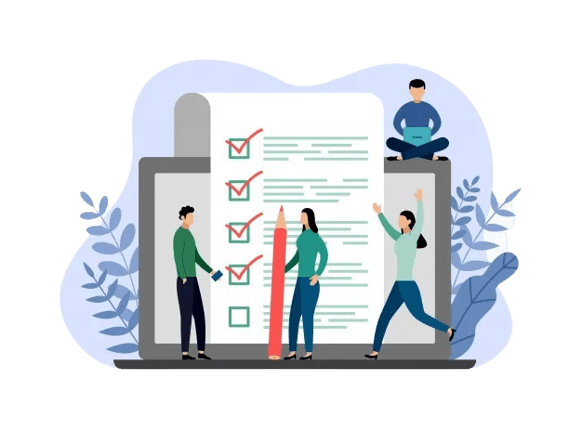Responsibility OCD Assessment
3 Min Free Responsibility OCD Assessment
Who Can Benefit From This Responsibility OCD Assessment?
Anyone who suspects they may be experiencing symptoms related to responsibility OCD can benefit from this assessment. It is designed to help individuals identify patterns of thought and behavior that are characteristic of responsibility OCD.
By answering the questions, individuals can gain insight into their concerns about responsibility, their need for reassurance, and the impact these issues may have on their daily life and well-being. This assessment can serve as a starting point for individuals to seek further evaluation and support from a mental health professional

Responsibility OCD Assessment Accuracy

The accuracy of a responsibility OCD assessment depends on various factors. While the questions can provide valuable insights and indicators of responsibility OCD symptoms, it is important to remember that it is not a diagnostic tool.
A formal diagnosis should be made by a qualified mental health professional based on a comprehensive evaluation. Self-assessments can be helpful in raising awareness and initiating discussions with professionals, but they should not be solely relied upon for a definitive diagnosis. Professional evaluation is crucial for accurate assessment and treatment planning.
Types of Responsibility OCD Assessment
Fear of Causing Harm
Assessing the individual’s concerns and intrusive thoughts related to unintentionally causing harm to themselves or others.
Moral Responsibility
Evaluating the individual’s excessive guilt and preoccupation with moral obligations, fear of being immoral or unethical.
Hyper-responsibility for Others
Assessing the individual’s excessive need to protect and take responsibility for the physical well-being and safety of others.
Perfectionism and High Standards
Evaluating the individual’s constant need for perfection, fear of making mistakes, and setting unrealistically high standards.
Responsibility for Thoughts
Assessing the individual’s obsessions and anxiety related to their thoughts being responsible for negative outcomes or harm to others.
Environmental Factors Responsibility
Evaluating the individual’s excessive concern & preoccupation with environmental factors & their potential negative impact on others or the world.
Handling Responsibility OCD
Handling responsibility OCD involves a combination of strategies and approaches. Here are some suggestions:
- Seek Professional Help: Consult with a mental health professional who specializes in OCD or anxiety disorders. They can provide an accurate diagnosis, offer therapy (such as cognitive-behavioral therapy), and suggest appropriate treatment options.
- Challenge Negative Thoughts: Learn to identify and challenge irrational or exaggerated thoughts related to responsibility. Consider the evidence supporting and contradicting these thoughts, and develop more balanced and realistic perspectives.
- Exposure and Response Prevention (ERP): Gradually expose yourself to situations that trigger your responsibility OCD fears, without engaging in compulsive behaviors. Over time, this can help reduce anxiety and break the cycle of OCD.
- Set Realistic Standards: Acknowledge that perfection is unattainable and set realistic standards for yourself. Accept that making mistakes is a normal part of being human.
- Practice Mindfulness: Engage in mindfulness techniques to help you stay present and non-judgmentally observe your thoughts and feelings. This can help reduce anxiety and provide a sense of control over your OCD.
- Limit Reassurance-Seeking: Resist the urge to seek constant reassurance from others. Gradually reduce the frequency of seeking reassurance, as this can reinforce OCD symptoms.
- Self-Care and Stress Management: Prioritize self-care activities such as exercise, relaxation techniques, healthy eating, and getting enough sleep. Manage stress through techniques like deep breathing, meditation, or engaging in hobbies.
- Support Network: Reach out to trusted friends, family, or support groups who can provide understanding, encouragement, and empathy during difficult times.
Remember, overcoming responsibility OCD takes time and patience. It’s important to work with a professional and practice self-care strategies consistently.

